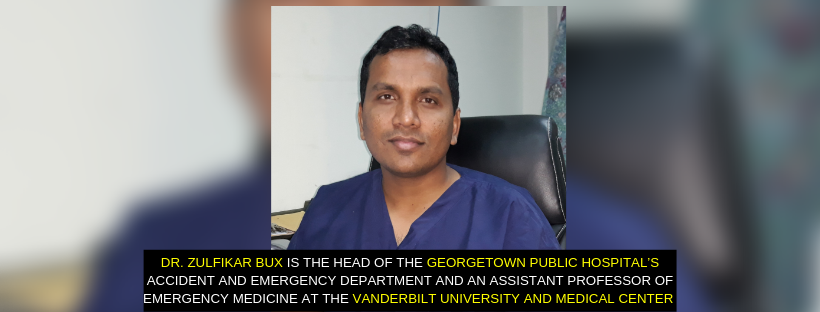Health in Focus with Dr. Zulfikar Bux
Cholesterol is a substance that is found in the blood. Everyone has some. It is needed for good health. The problem is, people sometimes have too much cholesterol.
Compared with people with normal cholesterol, people with high cholesterol have a higher risk of heart attacks, strokes, and other health problems. Cholesterol blocks our blood vessels over time and slowly increases our risks of getting one of these conditions.
I had written about cholesterol before, but persons still think that high cholesterol is the cause of some of their symptoms. I must emphasize again that high cholesterol is not known to cause symptoms; it causes medical conditions over time that may cause symptoms, but not the high cholesterol by itself.
ARE THERE DIFFERENT TYPES OF CHOLESTEROL?
Yes, there are a few different types. If you get a cholesterol test, you might hear your doctor talk about:
– Total cholesterol
– LDL cholesterol – Some people call this the “bad” cholesterol. That’s because having high LDL levels raises your risk of heart attacks, strokes, and other health problems.
– HDL cholesterol – Some people call this the “good” cholesterol. That’s because people with high HDL levels tend to have a lower risk of heart attacks, strokes, and other health problems.
– Triglycerides – Triglycerides are not cholesterol. They are another type of fat. But they often get measured when cholesterol is measured. Having high triglycerides also seems to increase the risk of heart attacks and strokes.
WHAT SHOULD MY NUMBERS BE?
Ask your doctor what your numbers should be. Different people need different goals. In general, people who do not already have heart disease should aim for:
– Total cholesterol below 200
– LDL cholesterol below 130 – or much lower, if they are at risk of heart attacks or strokes
– HDL cholesterol above 60
– Triglycerides below 150 Keep in mind, though, that many people who cannot meet these goals still have a low risk of heart attacks and strokes.
WHAT SHOULD I DO IF MY DOCTOR TELLS ME I HAVE HIGH CHOLESTEROL?
Ask your doctor what your overall risk of heart attacks and strokes is. High cholesterol, by itself, is not always a reason to worry. Having high cholesterol is just one of many things that can increase your risk of heart attacks and strokes. Other factors that increase your risk including
– Cigarette smoking
– High blood pressure
– Having a parent, sister, or brother who got heart disease at a young age – Young, in this case, means younger than 55 for men and younger than 65 for women.
– A diet that is not heart healthy
– A “heart-healthy” diet includes lots of fruits and vegetables, fibre, and healthy fats (like those found in fish and certain oils). It also means limiting sugar and unhealthy fats.
– Older age
If you are at high risk of heart attacks and strokes, having high cholesterol is a problem. On the other hand, if you are at low risk, having high cholesterol might not lead to treatment.
SHOULD I TAKE MEDICINE TO LOWER CHOLESTEROL?
Not everyone who has high cholesterol needs medicines. Your doctor will decide if you need them depending on your age, family history, and other health concerns.
You should probably take a cholesterol-lowering medicine called a statin if you:
– Already had a heart attack or stroke
– Have known heart disease
– Have diabetes
– Have a condition called peripheral artery disease, which makes it painful to walk, and happens when the arteries in your legs get clogged with fatty deposits
– Have an abdominal aortic aneurysm, which is a widening of the main artery in the belly
Most people with any of the conditions listed above should take a statin no matter what their cholesterol level is. If your doctor puts you on a statin, stay on it. The medicine might not make you feel any different, but it can help prevent heart attacks, strokes, and death.
CAN I LOWER MY CHOLESTEROL WITHOUT MEDICINES?
Yes, you can lower your cholesterol some by:
– Avoiding red meat, butter, fried foods, cheese, and other foods that have a lot of saturated fat
– Losing weight (if you are overweight)
– Being more active
Even if these steps do little to change your cholesterol, they can improve your health in many ways. Now that you are more aware about cholesterol, the next time you or someone get a headache, feel dizzy, feel weak or have any other symptom, please do not say it’s your high cholesterol. It is definitely not your cholesterol, get checked out to find the real cause of your complaint.











